Ke Lai
A Novel K-Repetition Design for SCMA
May 17, 2022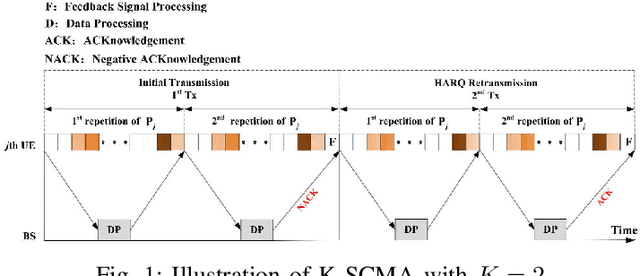
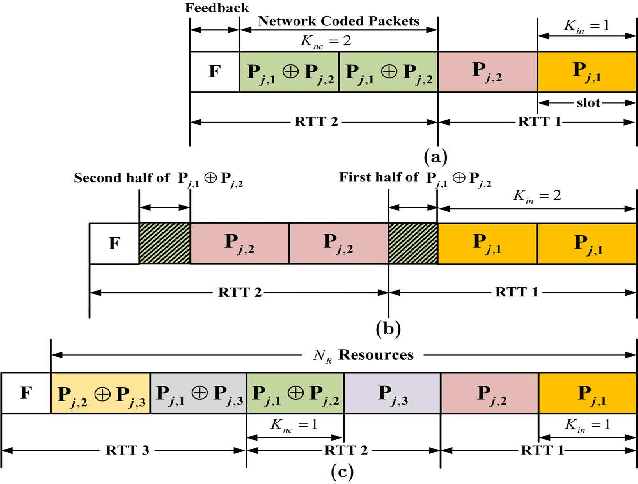
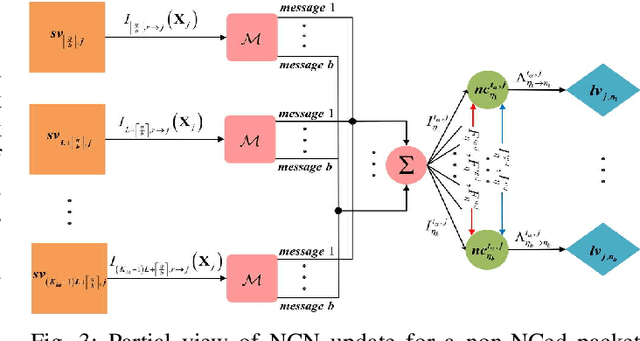
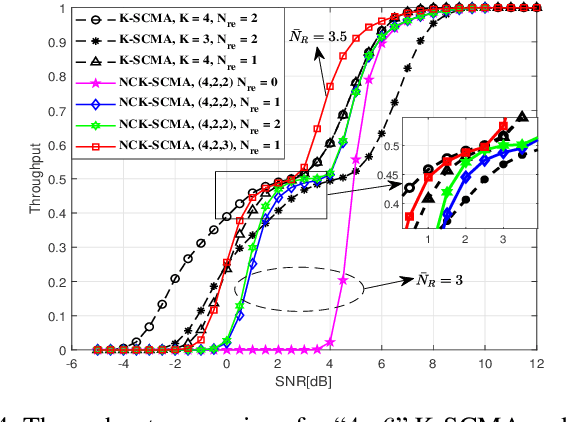
Abstract:This work presents a novel K-Repetition based HARQ scheme for LDPC coded uplink SCMA by employing a network coding (NC) principle to encode different packets, where K-Repetition is an emerging technique (recommended in 3GPP Release 15) for enhanced reliability and reduced latency in future massive machine-type communication. Such a scheme is referred to as the NC aided K-repetition SCMA (NCK-SCMA). We introduce a joint iterative detection algorithm for improved detection of the data from the proposed LDPC coded NCKSCMA systems. Simulation results demonstrate the benefits of NCK-SCMA with higher throughput and improved reliability over the conventional K-Repetition SCMA.
Analyzing Uplink Grant-free Sparse Code Multiple Access System in Massive IoT Networks
Mar 18, 2021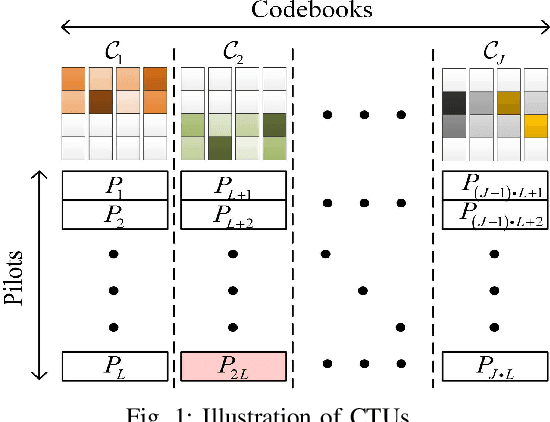
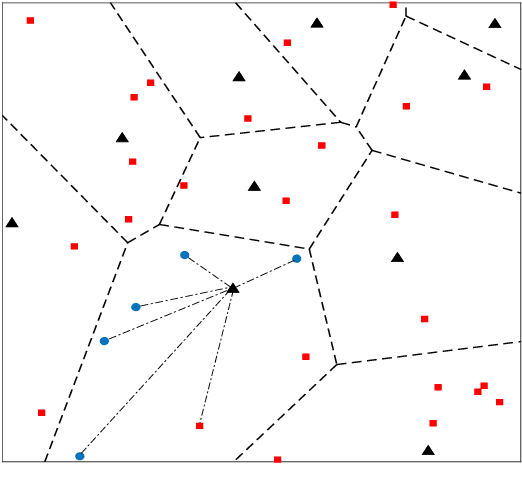
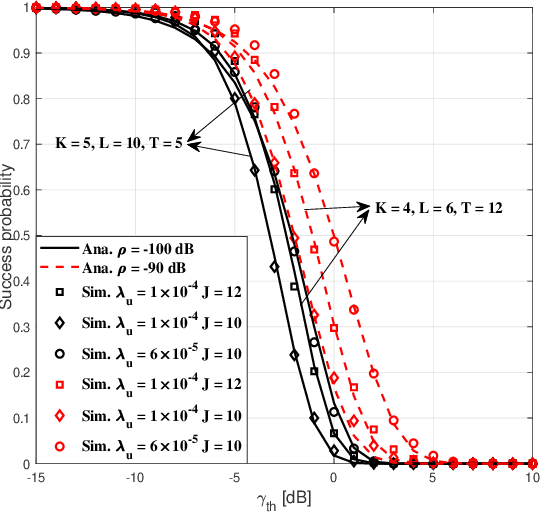
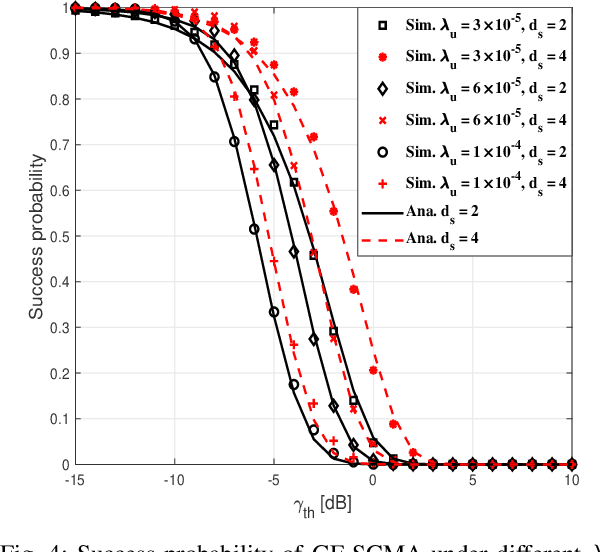
Abstract:Grant-free sparse code multiple access (GF-SCMA) is considered to be a promising multiple access candidate for future wireless networks. In this paper, we focus on characterizing the performance of uplink GF-SCMA schemes in a network with ubiquitous connections, such as the Internet of Things (IoT) networks. To provide a tractable approach to evaluate the performance of GF-SCMA, we first develop a theoretical model taking into account the property of multi-user detection (MUD) in the SCMA system. We then analyze the error rate performance of GF-SCMA in the case of codebook collision to investigate the reliability of GF-SCMA when reusing codebook in massive IoT networks. For performance evaluation, accurate approximations for both success probability and average symbol error probability (ASEP) are derived. To elaborate further, we utilize the analytical results to discuss the impact of codeword sparse degree in GFSCMA. After that, we conduct a comparative study between SCMA and its variant, dense code multiple access (DCMA), with GF transmission to offer insights into the effectiveness of these two schemes. This facilitates the GF-SCMA system design in practical implementation. Simulation results show that denser codebooks can help to support more UEs and increase the reliability of data transmission in a GF-SCMA network. Moreover, a higher success probability can be achieved by GFSCMA with denser UE deployment at low detection thresholds since SCMA can achieve overloading gain.
 Add to Chrome
Add to Chrome Add to Firefox
Add to Firefox Add to Edge
Add to Edge